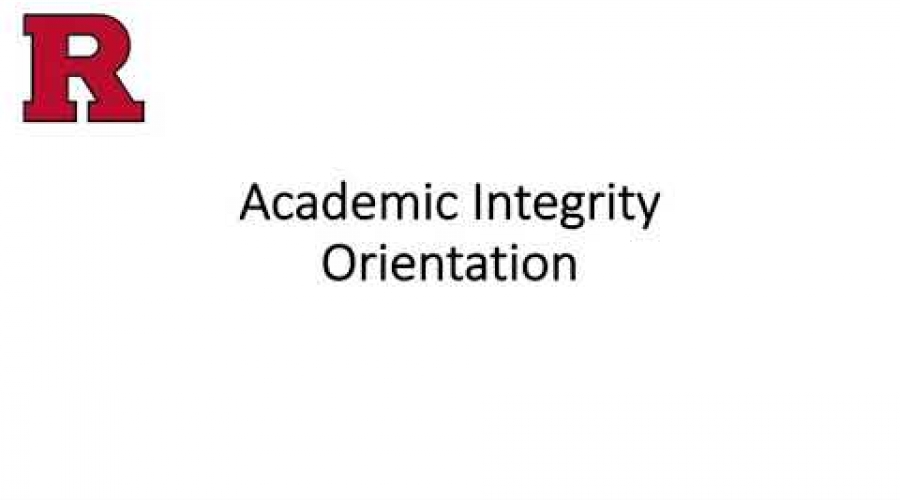RBS has many terrific career management professionals who do a great job of ensuring our students are prepared and have access to many of the world’s best employers. But it’s a very competitive job market. If you lack integrity in your academic work, you will be at a disadvantage because you may not know what recruiters and employers expect you to know. And if your lack of integrity results in a low or failing grade in a course, an XF, or even suspension or expulsion, your job search will become much more difficult. The best way to succeed in business, and in life, is to consistently act with complete integrity.
To avoid problems, ensure you know what academic integrity is and be aware of the common reasons why students, despite the costs, sometimes fail to maintain academic integrity.
What is Academic Integrity?
RBS adheres to the Rutgers University Academic Integrity Policy. Read it. Know it. Live it.
Watch the Academic Integrity Student Orientation presentation to learn more about the policies
What are the types of violations?
Section III of the RU Academic Integrity Policy lists the different types of violations. Ignorance is never an excuse for any of these violations. But the first listed violation – plagiarism – is the one that most often confuses students. If you still lack clarity regarding what constitutes plagiarism, then review the resources provided on the RU academic integrity website.
There are many types of academic integrity violations but only three levels of violation. Section IIIB of the RU Academic Integrity Policy defines these levels in detail and provides examples of violations and sanctions. The main distinctions are as follows (from p. 6 of Policy):
“Level 1 violations are less serious violations of academic integrity. They may occur because of inexperience or lack of understanding of the principles of academic integrity and are often characterized by a relatively low degree of premeditation or planning on the part of the student committing the violation. These violations are generally quite limited in extent, occur on a minor assignment or quiz, or constitute a small portion of a major assignment and/or represent a small percentage of the total course work.”
What happens if I'm accused of a violation?
If you are accused of violating the academic integrity policy, in most situations faculty have the option of handling your case directly, or they may ask an RBS Academic Integrity Facilitator to handle it. If it is not a first-time violation, or if you are a graduate student, faculty members do not have the option to handle it directly and must pass it to an RBS Academic Integrity Facilitator.
Section III of the RU Academic Integrity Policy provides information about the various parties involved in administration of the academic integrity policy. If you are accused of a violation, familiarize yourself with these roles. In addition, review the Flow Chart and Explanation of the Process.
Avoiding violations
The best way to avoid violating the academic integrity policy is to steer clear of situations that tempt you to take shortcuts. Prepare for class – you should expect to spend at least two hours outside of class studying for each hour of in-class instruction. Pace written assignments so that you have plenty of time for research and revision. Don’t take more courses than you have the time and ability to handle. If you need help, seek it. Talk to your academic advisor. Use RBS and RU resources.
We all know it happens, though. One of the world’s leading experts on cheating in college was an RBS faculty member. He literally wrote the book on the topic. And he’s helped us all to be aware of its existence and how to prevent it and police it. RBS faculty are on alert for violations. When violations occur, they lead to significant penalties.
